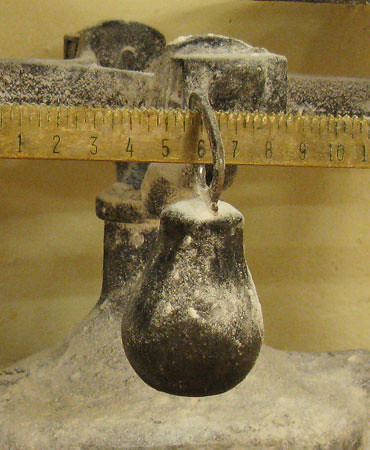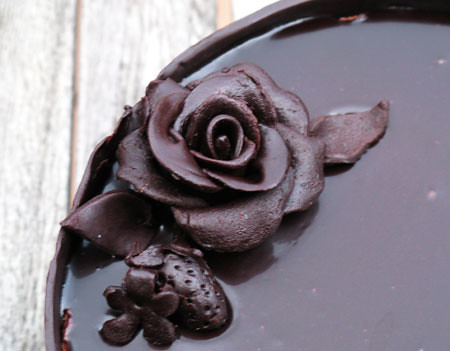 Cookies were an easy choice for my experimentation. I like cookies, I have many basic cookie recipes that are only leavened with baking powder, and from what I understood about the science of how this worked, the results had a good chance of being edible. Edible was important, because I was going to eat these things no matter what.
Cookies were an easy choice for my experimentation. I like cookies, I have many basic cookie recipes that are only leavened with baking powder, and from what I understood about the science of how this worked, the results had a good chance of being edible. Edible was important, because I was going to eat these things no matter what.It has been said that I get caught up, sometimes, in details. I don't think this is a bad thing, mostly. And, of course, this kind of project just feeds that repressed scientist in me. The plan was I would make a basic sugar cookie, one batch of which would be leavened with baking powder, the other with an equal measure of powdered antler.
"But," said Crazy Brain Me, "you know that differences in mixing time, ingredient temperature, baking temperature all those things will make a difference!"
"Shut up, Crazy Brain Me! I'm just making cookies to see if this works." I said.
"Yes, but you want to *really* know, right? You don't want to just maybe have it work because of something else, right?"
Sigh. Crazy Brain Me was right. So I just made one batch all in the bowl but the leavening and mixed it until almost combined. Then, I pulled the mix out, scaled it, divided the dough in half, and mixed half with the baking powder and half with the antler powder. The dough logs rested for an hour, and then were baked. Of course, Crazy Brain Me kept coming up with new and exciting variables, but dammit, I don't have two ovens and they would have different hot spots so Crazy Brain me could just shut up.
In case you are curious, yes, there was a definite stink while the antler cookies were baking. Not painful or oh-god-fumigate levels, but enough to avert my nose when opening the oven door.

There were definite, obvious differences between the cookies even right from the oven. The Antler cookies (labelled A because I am not clever) were more colored, and crisper. The Baking powder cookies (B, same reason) had a softer texture, and very little color in the same amount of time. And as for taste, well, I had to subject other people to these cookies, so I took them to see friends at the farmer's market*.
The tasting came down to this: if you like crispy cookies with a more pronounced salt note, you liked the antler cookies. If you wanted a creamier, sweeter cookie, you liked the baking powder ones. Me, I am a crispy cookie girl all the way so I have to say, yep, I am totally going to make antler cookies again. And antler biscotti. And probably a savory antler cracker.
Antler Cookies:
8 oz cool butter, cut in chunks
.5 c sugar
2 egg yolks, save the whites for brushing the dough later
.5 t vanilla extract
.25 t lemon zest
1 t lemon juice
.5 t grated antler powder
.5 t salt
2.25 c all purpose flour
raw sugar
1. Cream together butter and sugar in a stand mixer with a paddle until smooth
2. Add yolks, lemon zest and juice, and vanilla, mix on low speed and scrape bowl.
3. Add dry ingredients and mix on low speed until just combined.
4. Divide dough in 4 and roll into logs. Wrap logs in plastic wrap and chill for at least 1 hour.
5. Preheat oven to 350. Brush each log lightly with egg whites and press raw sugar around the log. Slice into cookies about a quarter inch thick or less, and place on a parchment lined cookie sheet.
6. Bake 10-12 minutes or until light golden brown, rotating the sheet pan once. Cool completely on a rack. Share. Eat. Marvel at your apocalypse preparedness.
*an interesting note: a debate sprung up on whether or not these cookies could be considered vegetarian, as the antlers were naturally shed and therefore there was no animal trauma involved. I went the safe route and asked folks before offering cookies. If you have an opinion, I'd love to hear it.








